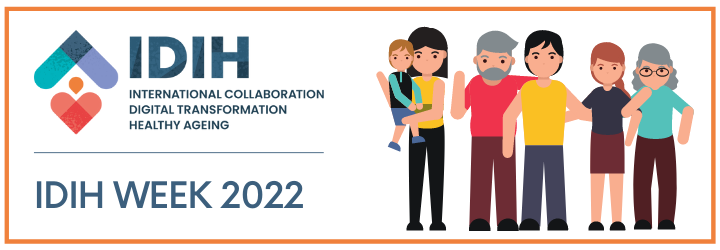BY MIKE MAGEE
Stable, civic societies are built upon human trust and confidence. If you were forced to rebuild a society, leveled by warfare and devastation, where would you begin? This is the question the U.S. Army faced at the close of WW II, specifically when it came to rebuilding Germany and Japan, hopefully into stable democracies. The Marshall Plan answered the question above, and its success in choosing health services as a starting point was well documented by many in the years to come, including the RAND Corporation. Their summary in 2007 said in part, “Nation-building efforts cannot be successful unless adequate attention is paid to the health of the population.”
They began with services for women and children, the very location that a splinter of politicians and Supreme Court Justices has targeted, replacing entrusted doctors with partisan bureaucrats in an approach so obviously flawed that it forced a course correction a half-century ago in the form of Roe v. Wade.
The practice of Medicine is complex. Ideally it requires knowledge, skills, supportive infrastructure, proximity and presence. But most of all, it requires trust, especially in moments of urgency, with lives at stake, when an individual, and family, and community are all on high alert. When time is of the essence, and especially if one or more people are trying to make the right decision for two, rather than one life, decisions are impossibly personal and complex.
This was widely recognized by most physicians, including those most devout and conservative nationwide in the troubling years leading up to Roe v. Wade. As recently as 1968, the membership of the Christian Medical Society refused to endorse a proclamation that labeled abortion as sinful. In 1971, America’s leading conservative religious organization, the Southern Baptist Convention, went on record as encouraging its members “to work for legislation that would allow the possibility of abortion under such conditions as rape, incest, clear evidence of severe fetal deformity, and carefully ascertained evidence of the likelihood of damage to the emotional, mental, and physical health of the mother.” In 1973, both the Southern Baptist Convention and the Christian Medical Society chose not to actively oppose the Supreme Court ruling against a Texas law prohibiting abortion known as Roe v. Wade, and reaffirmed that position in 1974 and 1976.
What they recognized was that the nation’s social capital, its political stability and security, relied heavily on the compassion, understanding and partnership engendered in the patient-physician relationship. As most doctors saw it, what possible good could come from putting politicians in the middle of such complicated, emotion-ridden, and highly personal decisions?
The American Medical Association’s prepared reaction to the June 24, 2022, reversal to Roe v. Wade was direct and immediate. They labeled the decision “an egregious allowance of government intrusion into the medical examination room, a direct attack on the practice of medicine and the patient-physician relationship…” Their president, Jack Resneck Jr. M.D. went further to say, “…the AMA condemns the high court’s interpretation in this case. We will always have physicians’ backs and defend the practice of medicine, we will fight to protect the patient-physician relationship..” But what exactly does that mean?
Approaching 75, and a lifelong member of the American Medical Association, I expect I know the AMA, its history as well as its strengths and weaknesses, as well as anyone. Aside from having deep personal relationships with many of the Board of Trustees over the years (some of whom quietly continue to contact me for advice), I have studied the evolution of the patient-physician relationship in six countries over a span of forty years.
Those who know me well, and who have pushed back against my critique of the organization, know that my intentions are honorable and that the alarms that I sound reflect my belief that, for our profession to survive as noble, self-governing, and committed above all to the patients who allow us to care for them, we must have a national organization with reach into every American town and city, and official representation in every state, and every specialty.
My concern today, despite the strong messaging from Chicago, is that the AMA and its members have not fully absorbed that this is a “mission-critical” moment in the organization’s history. It is also an opportunity to purposefully flex its muscles, expand its membership, and reinforce its priorities. The strong words, without actions to back them up, I believe, will permanently seal the AMA’s fate, and challenge Medicine’s status as a “profession.”
Here are five actions that I believe the AMA should take immediately to make it clear that physicians stand united with our patients, in partnership with nurses and other health professionals, and that the actions of last week can not and will not stand.
- The AMA should pull all financial support for all Republican candidates through the 2022 elections.
- The AMA should actively encourage physician “civil disobedience” where appropriate to protect the health and well being of all women, regardless of age, race, sexual identity, religion, or economic status.
- The AMA should convene, under the auspices of its’ General Counsel, Andra K. Heller, a formal strategy meeting with the legal counsels of all state and specialty medical societies to formulate an aggressive legal approach to minimize the damage of the recent Supreme Court action.
- The AMA should actively promote AMA volunteers to help provide a full range of women’s health care services at federal institutions and on federal land, and stand up information sites that coordinate travel and expenses should inter-state travel be required for care access.
- The AMA should immediately make clear that any restriction of prescribing authority of medications in support of women’s health care, including contraceptive medications and devices, and Plan B treatments will result in a coordinated nationwide disruption of health services.
Mike Magee MD is a Medical Historian and the author of “CODE BLUE: Inside the Medical-Industrial Complex.”














